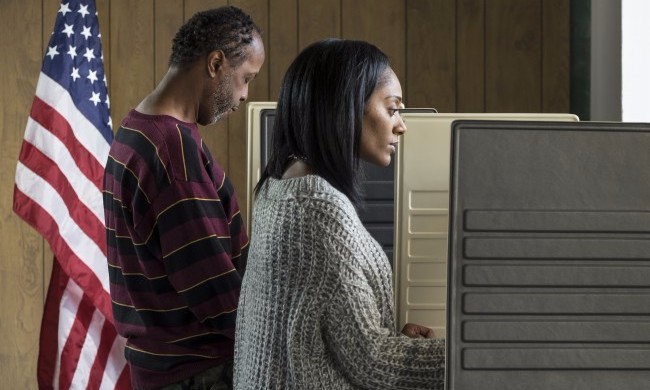
In Sparta, a small town of roughly 1,500 people in central Georgia, black voters are being targeted in what opponents are calling a concerted effort to disenfranchise minorities and skew the voting pool.
According to the New York Times, the Hancock County Board of Elections and Registration has (for the last two years) issued summonses and otherwise questioned more than 180 black Spartans about their voting registration with challenges to prove their residence, identity, and other qualifications. If voters failed to appear in court, they were stripped of their voting rights.
The group of black voters who were targeted in this effort account for roughly one-fifth of the town’s voting pool. Sparta is more than 80 percent black; the Board of Elections is majority white. In November of last year, Allen Haywood, a white candidate, won a narrow mayoral race over the city’s black incumbent, William Evans Jr. The margin of victory was fewer than 100 votes with reports saying as many as 174 black voters turned away at the polls. (Haywood’s win, the first for a white candidate in 32 years, was later overturned, although a main point of contention was a 1983 felony conviction that he had failed to disclose.)
Voting rights advocates note that there were likely voters beyond those turned away at the polls who had been dissuaded from participating. As Marion Warren, a Sparta elections official, puts things, “People just do not understand why a sheriff is coming to their house to bring them a subpoena, especially if they haven’t committed any crime.” They may have reason to wonder too. According to the Jackson Sun, black residents of Hancock County are arrested at a rate far higher than that of white residents.
Though a federal lawsuit has been filed, the legality of such measures is something of a grey area. As recently as three years ago, a targeted voter registration review such as Hancock County’s required pre-approval from the Justice Department. However, the Supreme Court’s 2013 ruling in Shelby County v. Holder ruled that this mandate for pre-approval was unconstitutional. At the time, many legal scholars noted that the decision marked a serious erosion of the 1965 Voting Rights Act.
Nevertheless, in late July, a federal appeals court found that several laws passed by the North Carolina state legislature also violated the Voting Rights Act. The court found that the laws, most of which dealt with photo identification requirements at polling places, were “passed with racially discriminatory intent.”
(Via New York Times, Jackson Sun & Those People)
